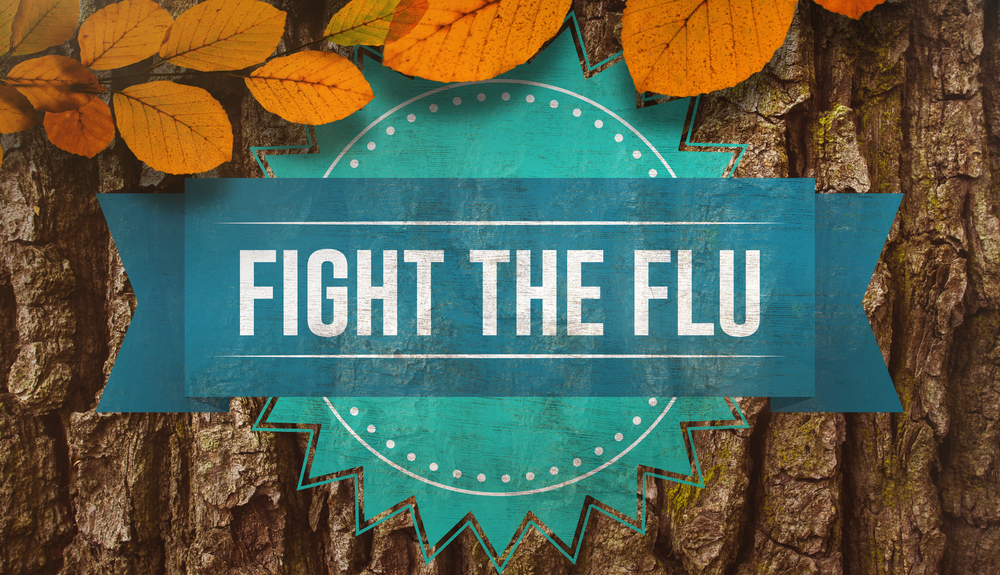
It is that time of year again! The nights are darker, the temperature colder and there are many more people sniffling on the tube. Although flu can happen any time of year, it is much more common in the winter months – hence the term “seasonal flu.” But how does flu differ from a common cold? And how can you protect yourself from getting it?
What is flu?
Flu, otherwise known as Influenza, is a contagious group of viruses that can affect children and adults alike. Flu is spread by breathing in droplets in the air that have been created when an infected person coughs or sneezes.
How does the flu differ from a cold?
When you have the flu, your symptoms tend to be more severe and last longer. A common cold is caused by a different set of viruses to the flu. Although symptoms such as nasal congestion, sore throat and a cough may be common to both, they are much more pronounced in flu, with more severe secondary infections such as pneumonia being a possibility. It is also more likely to cause complications in higher-risk groups, e.g. the elderly, those with chronic disease and in pregnancy. Unfortunately flu can still cause death in some cases, with a spike in mortality in 2015 thought to be attributable to the disease.
What are the symptoms of flu?
Flu tends to come on pretty quickly, common symptoms include:
- A high temperature
- A blocked nose, cough or sore throat
- A headache
- Muscle and joint aches and pains
- Weakness and fatigue
- Nausea, vomiting or loss of appetite
I think I have the flu – what should I do?
If you are normally fit and well and you think you have flu, you don’t necessarily need to see your GP. Stay at home, keep warm and ensure you have plenty of fluids and painkillers (e.g. ibuprofen or paracetamol) if needed. Most people will feel better in about a week.
Some people are at a higher risk of having complications from flu, and in these instances it is a good idea to let your GP know you are unwell. You may be at risk if you are over the age of 65, have a weakened immune system, or suffer with certain health conditions, e.g. chronic conditions affecting the heart and lungs and neurological systems. In these instances, an antiviral medication (Tamiflu or Relenza) may be prescribed at the discretion of your GP. Whilst this does not cure flu, it can prevent the virus from multiplying which normally means the illness will not last as long and the symptoms can be less severe
How can I stop myself from getting flu?
Get vaccinated if you are in an at-risk group. Just to recap – you are at risk if you are over 65, pregnant, have certain health conditions, or have a weakened immune system. Children are eligible if they are older than 6 months with a long-term health condition or are age two, three or four or in school years one, two and three. Carers and health care professionals can also get it. If you are not in these groups, you can pay for it privately at various locations including pharmacies and clinics. You can also help to prevent the spread of flu and other viral illnesses by washing your hands, and covering your mouth and nose when you cough or sneeze.
Am I fully protected if I have the vaccine?
No flu vaccine gives you complete cover as it does not cover all strains of the virus. Last year it was about 50-60% effective in children and young adults. Studies have shown that if you do get flu after getting vaccinated, it is likely to not last as long and the symptoms may not be as severe.
When should I have the flu vaccine?
The flu vaccine is a yearly vaccine, as it gets updated every year based on the last year’s vaccine effectiveness and common flu strains. The best time to get vaccinated is in October/November so you have cover for the winter months.
What viral strains does the 2016/2017 flu vaccine cover?
A/H1N1 – the one that cause swine flu.
A/H3N2 – dangerous in the elderly and those with long-term health conditions.
Influenza B – mainly affects children.
Can I get flu from the vaccine?
No. It’s normal to feel a bit achy or to have a low-grade temperature after the injection, but you will not get flu.
Who can’t have the vaccine?
Those who are allergic to a component to the vaccine, have anaphylaxis to eggs or who a history of a neurological condition called Guillain-Barre. Unlike the adult vaccine, some childhood flu vaccines (e.g. Fluenz) contain a live attenuated virus. Live vaccines should be avoided in children with acute and chronic leukaemia, lymphoma, HIV not on medication, cellular immune deficiencies and those on high-dose steroids. It should also be avoided in those who are pregnant. In these instances, the inactivated version of the vaccine can be used.
This article is for information only and should not be used for the diagnosis or treatment of medical conditions. myHealthSpecialist makes no representations as to the accuracy or completeness of any of the information in this article, or found by following any link from this article. Please consult a doctor or other healthcare professional for medical advice.
Follow me on Instagram: doctoranna_gp
